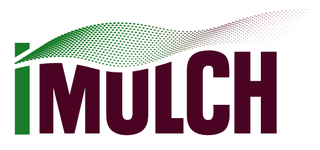Institut für Energie- und Umwelttechnik
Bliersheimer Str. 58-60
47229 Duisburg
Germany
iMULCH

Contact
The Institute of Applied Microbiology (iAMB) is primarily engaged in the design of microbial strains and processes to efficiently produce industrially relevant chemicals from renewable resources. The interdisciplinary methods employed range from systems analysis and metabolic engineering to synthetic biology as well as cultivation intensification.
One focus lies on polymer recycling, where plastic side streams are used as carbon source of microbes that produce bioplastic and other molecules of value. The biodegradability of mulch film monomers and potential upcycling strategies are subject of research within the iMulch project.
Goals
The main goals of iMULCH include
- Estimation of the extent to which agricultural soils are contaminated by plastics.
- Development of a measuring method to determine concentration, particle size, types and shapes of different polymers in soil ecosystems.
- Investigate the effects of plastics on organisms, soil function, drainage systems and adjacent waters.
- Comparison of existing national and international threshold values for plastic materials in soils.
- Recommendation of a threshold value for plastics in soils under consideration of soil protection as well as national and international legislation.
- Recommendation on how plastic emissions from mulch films in soils can be reduced.
- Recommendation on how mulch film plastics can be recycled as a valuable resource as part of a circular plastics economy.

Dr Carmen Wolfis working as scientist at IUTA since 2008. Her main contribution is in the field of particle characterization, particle exposure and fate as well as risk assessment in the environment. She started with the analysis of ultrafine particles in the air, and then she worked on the analysis of the behaviour of (nanoscale) particles in water and soil.
Since 2017, she has been researching the behaviour of (micro)plastic particles in the environment and has been coordinating the iMulch project since 2018.

